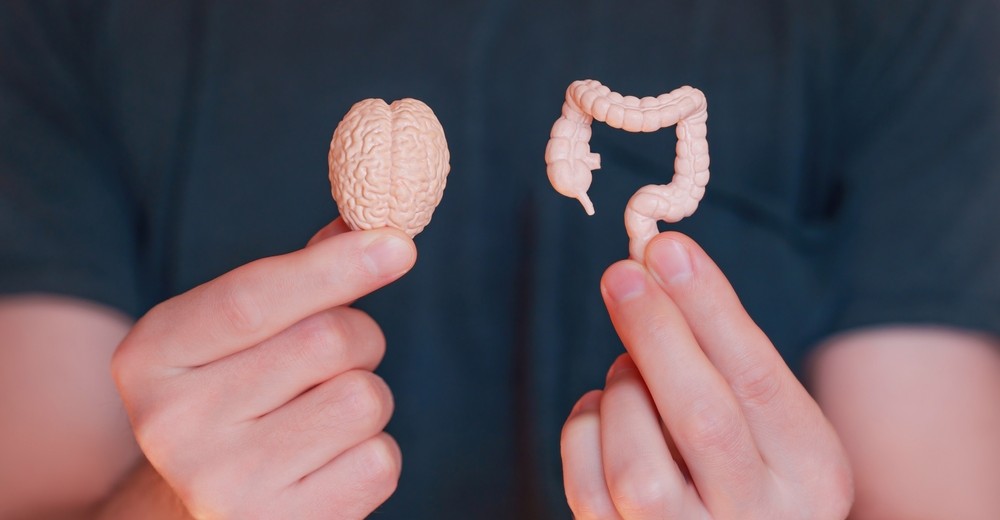The gut and the brain may seem like unrelated parts of the body, but they are deeply interconnected through what scientists call the gut-brain axis. Emerging research shows that the health of your gut can significantly influence your mental health, affecting mood, stress levels, and even conditions like anxiety and depression. In this article, we’ll explore the science behind the gut-brain connection, how gut health impacts mental health, and practical tips to support both.
What Is the Gut-Brain Axis?
The gut-brain axis is a bidirectional communication system between the gastrointestinal tract and the brain. It involves:
- The Nervous System: The vagus nerve connects the gut and brain, transmitting signals in both directions.
- The Immune System: Gut health influences inflammation, which can affect brain function.
- The Endocrine System: The gut produces hormones and neurotransmitters that impact mood and behavior.
- The Microbiome: Trillions of bacteria in the gut play a key role in regulating brain health.
How Gut Health Affects Mental Health
1. The Role of the Microbiome
The gut microbiome, the community of bacteria and other microorganisms in your digestive system, plays a crucial role in mental health. A healthy microbiome:
- Produces neurotransmitters like serotonin (often called the “feel-good” hormone).
- Regulates inflammation, which is linked to depression and anxiety.
- Supports the production of short-chain fatty acids (SCFAs), which protect brain health.
2. Inflammation and Mental Health
Chronic inflammation in the gut can lead to inflammation in the brain, contributing to conditions like depression and anxiety. Poor gut health, often caused by an imbalanced diet or stress, can trigger this inflammatory response.
3. Stress and the Gut
Stress can disrupt the balance of gut bacteria, leading to digestive issues and worsening mental health. Conversely, an unhealthy gut can increase stress sensitivity, creating a vicious cycle.
Mental Health Conditions Linked to Gut Health
- Depression: Low levels of beneficial gut bacteria are associated with reduced serotonin production.
- Anxiety: An imbalanced microbiome can increase stress responses and anxiety symptoms.
- Autism Spectrum Disorder (ASD): Research suggests a link between gut health and ASD symptoms.
- Cognitive Decline: Poor gut health may contribute to neurodegenerative diseases like Alzheimer’s.
How to Support Gut Health for Better Mental Health
1. Eat a Gut-Friendly Diet
- Probiotics: Found in fermented foods like yogurt, kefir, sauerkraut, and kimchi.
- Prebiotics: Found in fiber-rich foods like bananas, onions, garlic, and asparagus.
- Omega-3 Fatty Acids: Found in fatty fish, flaxseeds, and walnuts, they reduce inflammation.
- Polyphenols: Found in berries, dark chocolate, and green tea, they support gut bacteria.
2. Avoid Gut-Harming Foods
- Limit processed foods, sugar, and artificial sweeteners, which can disrupt gut bacteria.
- Reduce alcohol and caffeine, which can irritate the gut lining.
3. Manage Stress
- Practice mindfulness, meditation, or yoga to reduce stress and support gut health.
- Engage in regular physical activity, which benefits both the gut and brain.
4. Get Enough Sleep
- Poor sleep can disrupt the gut microbiome and worsen mental health.
- Aim for 7-9 hours of quality sleep each night.
5. Consider Probiotic Supplements
- Probiotic supplements can help restore balance to the gut microbiome.
- Consult a healthcare provider before starting any new supplement.
6. Stay Hydrated
- Drinking plenty of water supports digestion and overall gut health.
The Science Behind the Gut-Brain Connection
Research highlights the gut-brain connection through:
- Neurotransmitter Production: The gut produces about 90% of the body’s serotonin.
- Immune System Regulation: A healthy gut reduces systemic inflammation, which benefits the brain.
- Microbiome Diversity: A diverse microbiome is linked to better mental health outcomes.
When to Seek Professional Help
If you’re experiencing persistent mental health issues or digestive problems, consult a healthcare provider. They can:
- Assess your gut health through tests like stool analysis.
- Recommend personalized treatments, such as dietary changes or probiotics.
- Address underlying conditions like irritable bowel syndrome (IBS) or small intestinal bacterial overgrowth (SIBO).
The connection between gut health and mental health is a fascinating and rapidly growing field of research. By supporting your gut through a healthy diet, stress management, and lifestyle changes, you can improve both your digestive and emotional wellbeing. Remember, a healthy gut is a key to a healthy mind. Start making small changes today and experience the transformative power of the gut-brain connection.



